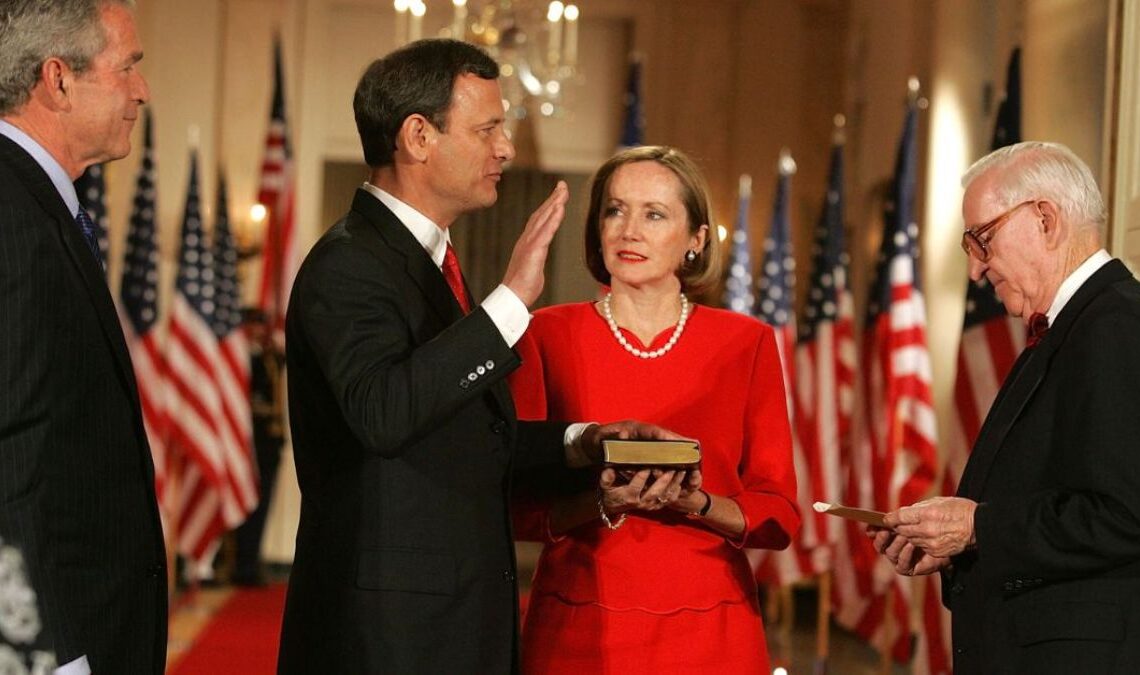The scrutiny of potential conflicts of interest in the personal lives of Supreme Court justices has reached a new level of concern with the proposed restriction of Chief Justice John Roberts’ wife, Jane Sullivan Roberts, from performing her job as a legal recruiter.
This suggestion was made by a former colleague of Sullivan Roberts, who was fired and sued by the recruiting firm.
The media brought attention to these concerns, quoting Senate Judiciary Committee chairman, Richard Durbin, stating that the letter raised “troubling issues” and the need for ethical reforms at the Supreme Court.
However, this is not a worthy cause for liberals to pursue. Sullivan Roberts has demonstrated a strong commitment to avoiding any appearance of impropriety by changing careers from a law firm partner to a recruiter after her husband became chief justice.
This move should be recognized as a significant sacrifice in a male-dominated world where women still make up less than 25% of law-firm partners.
As a recruiter, Jane Sullivan Roberts has maintained a policy since 2007 to stay away from anything related to her husband and not work with litigators who are appearing before the Supreme Court.
Chief Justice John Roberts
Chief Justice John Roberts, on the other hand, has consistently shown judicial independence, drawing criticism from both the left and the right.
The notion that he would be swayed in a case because his wife earns a living as a recruiter, receiving fees from law firms, is absurd.
Even Roberts’ detractors, both liberal and conservative, acknowledge his dedication to preserving the integrity of the Supreme Court.
He is widely considered one of the most ethical figures in the legal world, a Republican counterpart to Merrick Garland.
The real issue lies in the implicit assumption that a justice’s spouse should be held to an unattainable standard, effectively forcing them to abandon their career.
It’s not surprising that several Supreme Court justices are married to lawyers, given that they all went to law school and worked in legal environments.
These lawyers should not have to leave their careers simply because their spouse is on the bench.
The Current Conflict-Of-Interest
The current conflict-of-interest concerns are being raised about justice’s wife.
During Justice Ruth Bader Ginsburg’s lengthy and illustrious judicial career, no one ever seriously suggested that her husband, Marty Ginsburg, a prominent tax law expert, should leave his position at a top Washington law firm.
Apart from gender equality, there are other valid reasons to allow justices’ spouses to continue working in the legal field, as long as they avoid actual conflicts or the appearance of conflict.
It’s important to note that this discussion is not about a justice’s spouse (let’s call her Ginni Thomas) denying election results or communicating with the White House or a presidential campaign when election-related matters are before the Supreme Court.
This is a separate issue and has to do with recusal rather than conflict-of-interest rules, which focus on financial interests.





